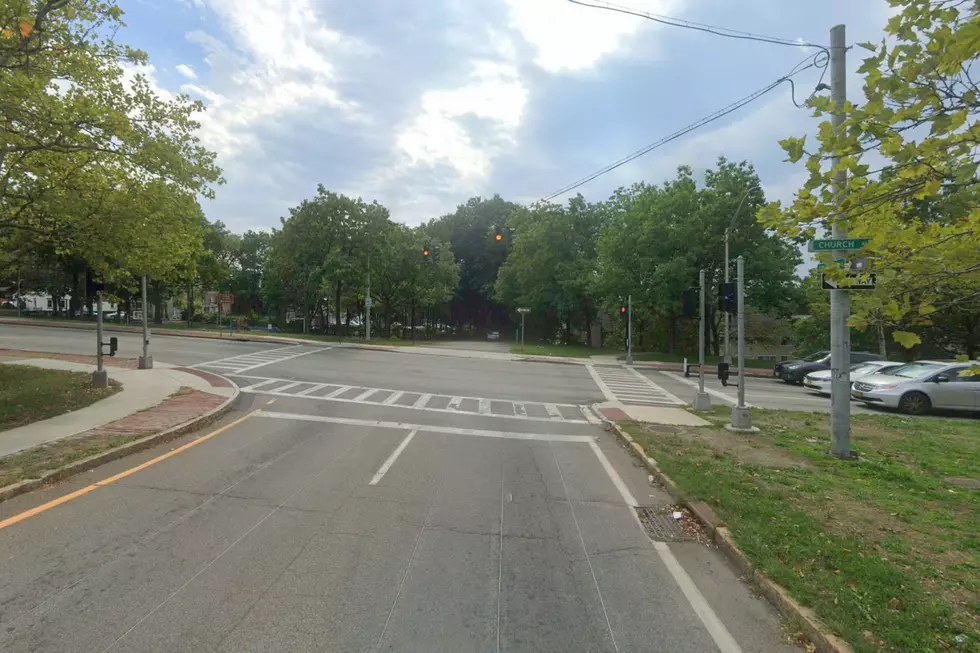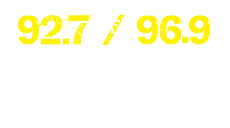
AI Program Based in Hyde Park, NY Seeks to “Dysolve” Dyslexia
I've expressed my distaste for AI programs multiple times on this platform; however, my main concern about it is when it outright takes away opportunities from people, makes us become more dependent on technology, and weakens our abilities. I believe when it's used right, it is used as a tool to benefit humanity and to make us stronger.
One example of that comes from Hyde Park, New York. I wanted to share this because I think it is really important for those living with learning disabilities to feel more included in scholastics and everyday life. Not everyone learns the same way, and this new AI program that's in clinical trials will be able to help level the playing field.
Hyde Park-based Program Assists Students with Dyslexia and Language-Related Disorders
When Hartwick College junior and NCAA D3 volleyball player Aaliyah Williams was in elementary school, her parents were concerned that her severe dyslexia might exclude their child from higher education.
Then, they found a trial with a promising new solution called Dysolve, the first AI computer program for dyslexia and language-related disorders based in Hyde Park, NY. With early intervention starting in the fifth grade, Willams graduated from the program and was able to catch up to her grade reading level in two years.
Williams said,
“Through Dysolve, my performance in school improved exponentially. I was able to score the grades that I wanted and by senior year already enrolled in a college-level English course.”
Student Philip L, age 18, described his brain as being very scattered before using Dysolve, relating his thoughts to a "pinball machine." He described that he would be a grade behind his other students when taking spelling tests, homework wouldn't get done because of feeling discouraged, and reading was painfully slow, having to stop at every other word. Reading out loud was even worse, and almost non-existent. When it came to group projects, he would try to hide in the corner. He was labelled as the kid who didn't want to do work, while in reality, he wanted to do better, but no one was able to help him how he needed it.
"Unlike what everyone says, dyslexia isn't that I see everything backwards, it's just kind of hard to read it in the first place because it's not like, if the words are going [left to right], I'd read it [right to left]. It's more like I'm just trying to figure out what the word is in the first place. One thing that I had a problem with a lot of times was I would see the beginning of a word and I would immediately think it was a different word."
Philip said that since using Dysolve, the program was able to help iron out all the bumps and put his mind on a more straightforward path. He said it is hard to quantify the impact of how ingrained it has become now. Dysolve helped him recognize word patterns and to understand spelling.
Overall, it made school, reading, and focusing so much easier. Dysolve allowed Philip to put interest into new things that he felt he wasn't able to explore before. It helped him build routines and habits to become much more effective in day-to-day life.
Dysolve is the First AI Computer Program for Dyslexia and Language-Related Disorders
Dysolve is the only computer program for dyslexia and language-related disorders that does not use preset testing kits. Unlike standard assessment tests, Dysolve does not use a fixed test sequence and linear training regimen that evaluates and treats everybody in the same way.
Instead, Dysolve generates new evaluative tests and specific training tasks for each learner to target that learner's unique problems. As it probes the root causes of the problems found, Dysolve designs increasingly targeted activities to correct them for that particular learner.
Despite the wide range of differences in the characteristics and behaviors of people with dyslexia, Dysolve can respond uniquely to the language-processing needs of each individual. This makes Dysolve the only intelligent program for diagnosing and correcting processing problems associated with dyslexia.
1 Dysolve can accommodate the wide diversity found in the population and decide on the spot what to present to each learner based on her unique traits and needs. Dysolve is an artificial intelligence system, part of a new generation of technology that can "think" like human experts.
Dysolve's Founders Are Educators and Parents Who Understand The Stresses of Special Needs
Through their academic center, Dysolve sees up close how learning disabilities affect self-esteem, family life, and careers. Through their work with former students, they know it doesn't always have to be this way.
Dysolve's published experts have advanced degrees, with specializations in Cognitive Science, Language Acquisition, Linguistics, Special Education, Instructional Technology and Computer Science. The staff includes former clients who are among their strongest advocates. The program also has researchers who continue to study the science of the brain.

Dysolve's Advisory Council is made up of Coral PS Hoh, Ph.D.; Kyoichi Haruta, Ph.D.; Evan Haruta, MS; C. Ryan Kinlaw, Ph.D.; Wen-yu Chiang, Ph.D., Kevin M. Gaugler, Ph.D.; Deborah Furman, MS; Richard Sackerman, MAT, MEd; Stephanie Sackerman, MA; and Ryan Zaccaro, MA.
How Does Dysolve Help Those with Dyslexia?
Based on the results of your initial screening when you sign up, the Dysolve Program generates learning and evaluation cells to target the problems found in your individual case. The learning cells re-train the brain to process aspects of the language you found problematic. The evaluation cells continually monitor your progress. Dysolve utilizes the "Coral Method." Coral stands for “Correcting the Architecture of Language.”
The Coral Method was invented to help individuals with dyslexia relearn how to process language, so that they can do so automatically, rapidly, and efficiently like others.
The Coral Method is a patented method for identifying and correcting language-processing problems often associated with dyslexia. It generates tests to chart these processing deficits for each learner. By applying the Coral Method, Dysolve can find these deficits without using invasive techniques or brain scans such as fMRIs.
As Dysolve continually reacts to the learner’s responses, the program can dig deeper and deeper to trace and remove the root causes of many language problems seen on the surface.
According to Dysolve, about 1 in 5 Americans have a learning disability and are more prone to drop out of high school. Less than 10% of US school teachers are fully trained to deal with reading disabilities. 74% of students identified as "reading disabled" in 3rd grade will remain that way through 10th grade.
Dysolve will soon have the official clinical test data to prove it!
- "Dysolving" Dyslexia: The Dysolve program is not only better at diagnosing and correcting dyslexia than human specialists, but it is also incredibly cost-effective. For example, Dysolve costs 1% of New York State’s special education budget on an annual per-pupil basis
- An Epidemic Undiagnosed: Dyslexia is the most common learning disability, affecting approximately 20% of the population. It is often undiagnosed, as most schools lack the resources necessary to test for the condition
- Dyslexia and Mental Health: Students with dyslexia and other learning disabilities drop out of high school at a rate three times higher than the general population
Many people with a learning disability can feel discouraged, even when new opportunities arise. When it comes to progress, Philip said,
"When you're first doing it, you don't really realize much because progress is slow. And a lot of people, including me, they'll get so caught up in the end, they won't realize how far they've come already. Like when you're doing a marathon, and you're halfway through, most people are like 'Man, I still have halfway to go. How am I going to make this?' Instead of 'Wow! I've already run half a marathon in the first place!"
7 Places to Buy Comic Books in The Hudson Valley
Upstate New York Record Holders, Including Oldest Ford Dealer and Smallest Bookstore!
Gallery Credit: Chuck D'Imperio
More From WRRV-WRRB









